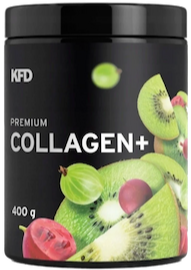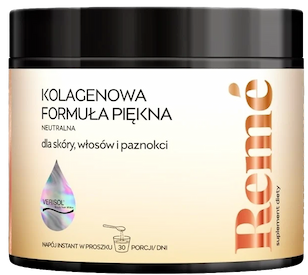Best collagen hydrolysate supplement 2025 [top 10, benefits]
Find out what a collagen hydrolysate is and find the best one for you.


Learn more about our editorial process
.

Learn more about our editorial process
.

Learn more about our editorial process
.

Learn more about our editorial process
.![Best collagen hydrolysate supplement 2025 [top 10, benefits]](https://cdn-resources.natu.care/uploads/1/hydrolizat_kolagenu_hero_b8f7e4e226.jpg)
Why you can trust us
Articles on Natu.Care are written based on scientific research, data from government websites and other reliable sources. The texts are written in cooperation with doctors, nutritionists and other health and beauty experts. Articles are reviewed before publication and during significant updates.
.Learn more about our editorial process
.Information about advertisements
Content on Natu.Care may contain links to products from the sale of which we may receive a commission. When creating content, we adhere to high editorial standards and take care to be objective about the products discussed. The presence of affiliate links is not dictated by our partners, and we select the products we review ourselves completely independently.
.Learn more about our terms and Conditions
.You're looking for a youth protein supplement and suddenly there's a crush. It's supposed to be collagen and it's hydrolysate. What's the point?"
In a nutshell about: effectiveness, convenience and efficiency. You'll see why, as we break this topic down into its essentials - just like hydrolysis breaks down collagen.
From this article you will learn:
- What is collagen hydrolysate and what properties it has. .
- What it is made from and how it differs from other forms of collagen. .
- Which supplements with collagen hydrolysate are the best. .
- What you can expect from such collagen for health and beauty. .
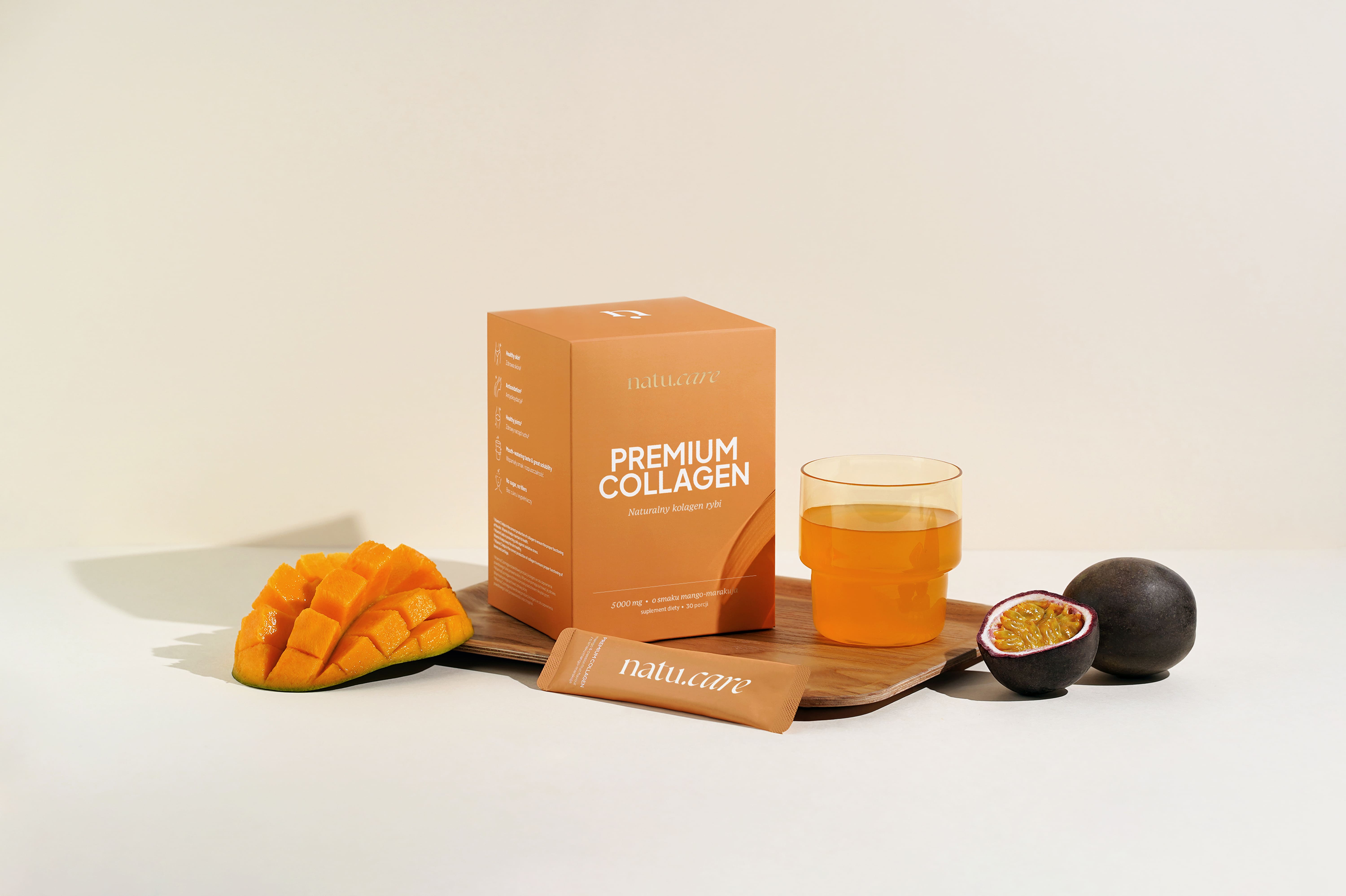
Sprawdź, za co pokochały go tysiące klientek Kolagen Premium 5000 mg, mango-marakuja
Natu.Care Kolagen Premium 5000 mg, mango-marakuja
Natu.Care Kolagen Premium dla zdrowia stawów, skóry, paznokci i włosów. Najlepsza przyswajalność. Optymalna dawka 5 000 lub 10 000 mg. Przebadany przez niezależne laboratorium.
Zobacz więcej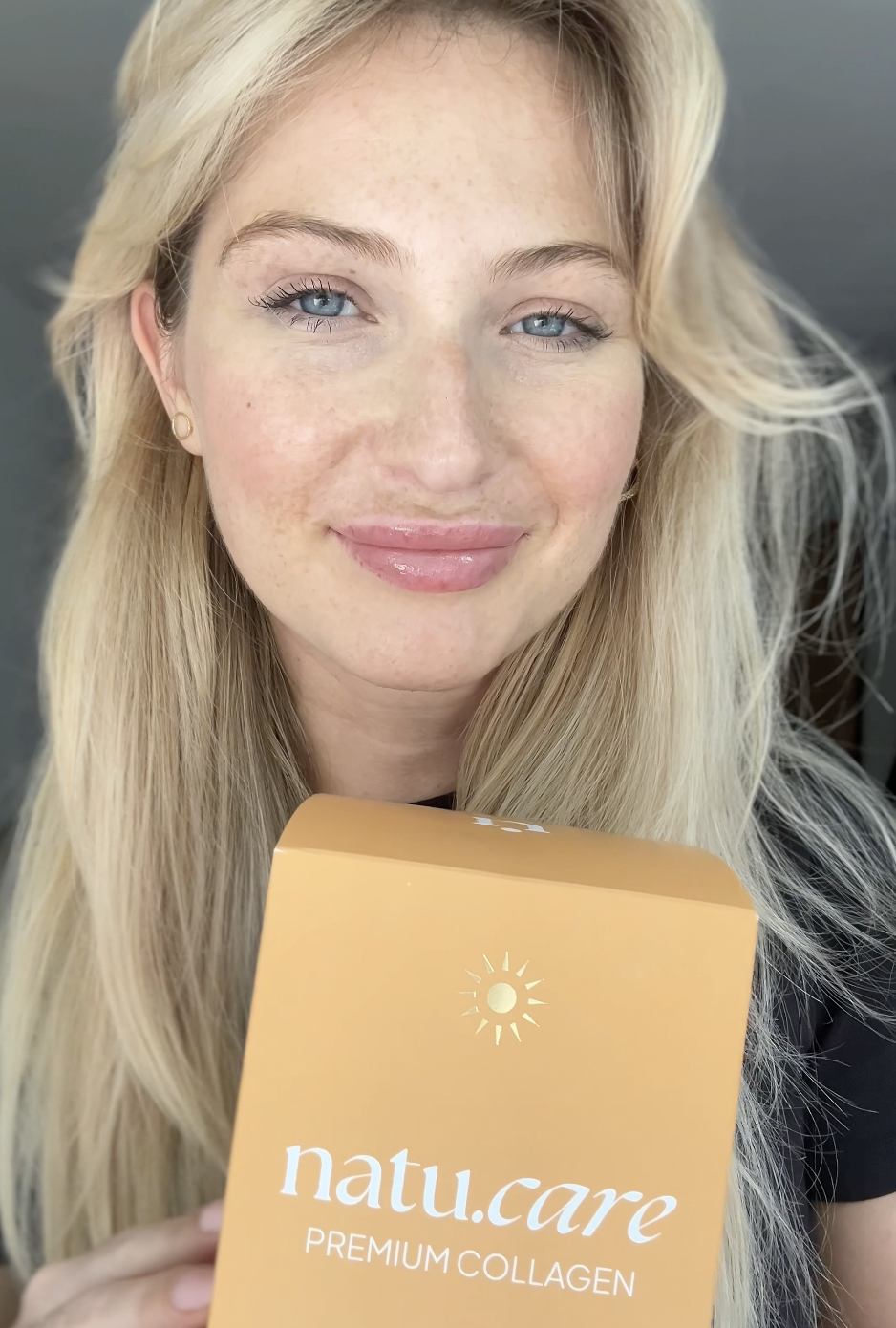
Wybrałam kolagen Natu.Care, ponieważ miał super opinie – a to było dla mnie bardzo ważne! Odkąd go stosuję, moja skóra znacznie się poprawiła i jest nawilżona, a na głowie pojawiły się nowe "baby hair".@Kasia S.
See also:
.
- Best Collagen
- Collagen for the skin
- Collagen for joints
- Collagen for hair
- Collagen for wrinkles
- Collagen for cellulite
- Collagen for stretch marks
- Collagen for acne
- Collagen for bones
- Collagen for tendons
What is collagen hydrolysate?
.
Collagen hydrolysate is collagen protein that has undergone hydrolysis, a chemical process involving water and enzymes. Under the influence of hydrolysis, the collagen molecule is broken down into smaller collagen peptides. As a result, they are better absorbed in the intestines than natural collagen or gelatine.
.
Imagine that your intestines are a sieve through which you are trying to sift something. Gravel is unlikely to pass through the small mesh. However, if you pour in sand, there is no problem.
If you pour in sand, there is no problem.
You could say that collagen hydrolysis is crushing it out of the gravel to the size of grains of sand. Cyk! and the absorbability is greater.
Collagen hydrolysate is commonly used in anti-aging supplements because it improves hair, skin, nails and reduces wrinkles and provides joint flexibility because it has the properties of collagen in your body.
Best collagen hydrolysate - ranking
.
With pharmacist Ilona Krzak, we have selected the best collagen hydrolysates available on the market.
Criteria for selection:
.
- .
- Collagen hydrolysate content - according to research, dietary supplements containing between 2.5 and 15 grams of collagen peptides have the best effectand. .
- Pure composition - no unnecessary chemicals. .
- Additional nutritional value - the best formulations also contain valuable vitamins and macro and micronutrients. .
- Proven effect - i.e. backed by scientific research. .
- Method of sourcing - out of concern for the environment, we make sure that products are sustainably sourced.
- Taste - supplementation should be a pleasure, then regularity is easier. Here you will see full criteria. .
Natu.Care Collagen Premium 5000 mg, mango-maracuja

- Collagen content: 5000 mg marine collagen hydrolysate
- .
- Additional active ingredients: vitamin C, low molecular weight hyaluronic acid (and L-theanine and coenzyme Q10 in cocoa flavoured collagen or vitamin A and vitamin E in mango–passion fruit flavoured collagen)
- .
- Form: powder sachets
- .
- Dose: 1 sachet per day
- .
- Sufficient for: 30 days
- .
Product description
Fish collagen from the Natu.Care brand in a dose of 5000 mg. The formula contains a sufficient portion of the active substance to positively affect your joints, musculoskeletal system and immunity.
Take care of your tendons, joint cartilage, ligaments, muscles and even bones by supplying them with the building blocks to function properly. Move without bólu and provide the necessary support for any physical activity.
And as a „gratis” to regular supplementation, you will also receive firm skinóhand, healthy and shiny hair and strong nails.
Natu.Care Premium Collagen is available in two flavours – Cacao Bloom and Rise&Shine. Both formulas are based on the following active ingredients: marine collagen hydrolysate, wild roseóbud extract and hyaluronic acid.
Additionally, Cacao Bloom contains natural L-theanine, coenzyme Q10 and defatted Dutch cacao. Rise&Shine instead contains vitamin E and vitamin A.
These are the best collagens in the world.
These best fish collagens on the market also rós taste – Cacao Bloom is a treat for chocolate lovers. Rise&Shine will appeal to those whoóenjoy the refreshing taste of mangoófruit and passion fruit.
Pros and cons
Fish collagen from the Natu.Care brand in a dose of 5000 mg. The formula contains a sufficient portion of the active substance to positively affect your joints, musculoskeletal system and immunity.
Take care of your tendons, joint cartilage, ligaments, muscles and even bones by supplying them with the building blocks to function properly. Move without bólu and provide the necessary support for any physical activity.
And as a „gratis” to regular supplementation, you will also receive firm skinóhand, healthy and shiny hair and strong nails.
Natu.Care Premium Collagen is available in two flavours – Cacao Bloom and Rise&Shine. Both formulas are based on the following active ingredients: marine collagen hydrolysate, wild roseóbud extract and hyaluronic acid.
Additionally, Cacao Bloom contains natural L-theanine, coenzyme Q10 and defatted Dutch cacao. Rise&Shine instead contains vitamin E and vitamin A.
These are the best collagens in the world.
These best fish collagens on the market also rós taste – Cacao Bloom is a treat for chocolate lovers. Rise&Shine will appeal to those whoóenjoy the refreshing taste of mangoófruit and passion fruit.
Additional information
Fish collagen from the Natu.Care brand in a dose of 5000 mg. The formula contains a sufficient portion of the active substance to positively affect your joints, musculoskeletal system and immunity.
Take care of your tendons, joint cartilage, ligaments, muscles and even bones by supplying them with the building blocks to function properly. Move without bólu and provide the necessary support for any physical activity.
And as a „gratis” to regular supplementation, you will also receive firm skinóhand, healthy and shiny hair and strong nails.
Natu.Care Premium Collagen is available in two flavours – Cacao Bloom and Rise&Shine. Both formulas are based on the following active ingredients: marine collagen hydrolysate, wild roseóbud extract and hyaluronic acid.
Additionally, Cacao Bloom contains natural L-theanine, coenzyme Q10 and defatted Dutch cacao. Rise&Shine instead contains vitamin E and vitamin A.
These are the best collagens in the world.
These best fish collagens on the market also rós taste – Cacao Bloom is a treat for chocolate lovers. Rise&Shine will appeal to those whoóenjoy the refreshing taste of mangoófruit and passion fruit.
User review
Fish collagen from the Natu.Care brand in a dose of 5000 mg. The formula contains a sufficient portion of the active substance to positively affect your joints, musculoskeletal system and immunity.
Take care of your tendons, joint cartilage, ligaments, muscles and even bones by supplying them with the building blocks to function properly. Move without bólu and provide the necessary support for any physical activity.
And as a „gratis” to regular supplementation, you will also receive firm skinóhand, healthy and shiny hair and strong nails.
Natu.Care Premium Collagen is available in two flavours – Cacao Bloom and Rise&Shine. Both formulas are based on the following active ingredients: marine collagen hydrolysate, wild roseóbud extract and hyaluronic acid.
Additionally, Cacao Bloom contains natural L-theanine, coenzyme Q10 and defatted Dutch cacao. Rise&Shine instead contains vitamin E and vitamin A.
These are the best collagens in the world.
These best fish collagens on the market also rós taste – Cacao Bloom is a treat for chocolate lovers. Rise&Shine will appeal to those whoóenjoy the refreshing taste of mangoófruit and passion fruit.
Natu.Care Collagen Premium 10000 mg, cherry

- Collagen content: 10,000 mg of hydrolyzed bovine collagen
- Additional active ingredients: vitamin C, low molecular weight hyaluronic acid, glucosamine, chondroitin, extract of Indian frankincense resin (boswellia serrata)
- Form: powder sachets for drinking
- Serving: 1 sachet per day
- Lasts for: 30 days
Product description
One of the strongest collagens on the market, providing as much as 10,000 mg per daily serving. This product can effectively support the condition of joints, skin, hair, and nails.
With this supplement, you will support your skeletal and joint system as well as your beauty, helping you visually halt the aging process and feel rejuvenated!
Pros and cons
Pros:
- The daily portion of collagen is very large – as much as 10,000 mg.
- Proven collagen formula – COLLinstant, whose effectiveness has been confirmed in clinical studies.
- Effective dose of hyaluronic acid, which additionally moisturizes the skin and positively affects joint health.
- Vitamin C supports the body's natural collagen production.
- Glucosamine is a fundamental building block of compounds found in joint cartilage and a component of collagen that gives elasticity to connective tissue in tendons.
- Chondroitin is a natural component found in the human body, mainly in cartilage. This large molecule (mucopolysaccharide) has the ability to absorb water, which helps maintain the elasticity and resilience of cartilage.
- Frankincense resin extract supports blood circulation and joint mobility and reduces their stiffness. It may help alleviate inflammatory conditions.
- The composition has been tested by the independent and accredited J.S. Hamilton laboratory.
Cons:
- None.
Additional information
Users praise Natu.Care Collagen Premium for the easy dissolving of the powder.
ALLDEYNN Collarose Fish
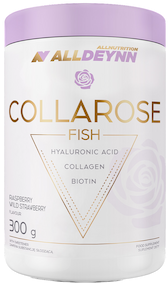
- Collagen content: 5000 mg hydrolysate fish collagen VERISOL F® .
- Additional active ingredients: vitamin C, hyaluronic acid, biotin
- Form: powder to dissolve in water .
- Dose: one scoop (6 g) of powder daily .
- Sufficient for: 50 days .
Product description
Atlantic cod collagen VERISOL F® contained in the formula are easily absorbed collagen peptides of fish origin. Regular supplementation can firm your skinóhand and slow down the ageing process. Your nails will become stronger and stop breaking. The addition of biotin will improve the condition of your hairów. The collagen portion is high enough to also have a good effect on your joints, muscles and bones.
Pros and cons
Atlantic cod collagen VERISOL F® contained in the formula are easily absorbed collagen peptides of fish origin. Regular supplementation can firm your skinóhand and slow down the ageing process. Your nails will become stronger and stop breaking. The addition of biotin will improve the condition of your hairów. The collagen portion is high enough to also have a good effect on your joints, muscles and bones.
Additional information
Atlantic cod collagen VERISOL F® contained in the formula are easily absorbed collagen peptides of fish origin. Regular supplementation can firm your skinóhand and slow down the ageing process. Your nails will become stronger and stop breaking. The addition of biotin will improve the condition of your hairów. The collagen portion is high enough to also have a good effect on your joints, muscles and bones.
Expert and user opinion
Atlantic cod collagen VERISOL F® contained in the formula are easily absorbed collagen peptides of fish origin. Regular supplementation can firm your skinóhand and slow down the ageing process. Your nails will become stronger and stop breaking. The addition of biotin will improve the condition of your hairów. The collagen portion is high enough to also have a good effect on your joints, muscles and bones.
DuoLife Collagen fish collagen 2500 mg
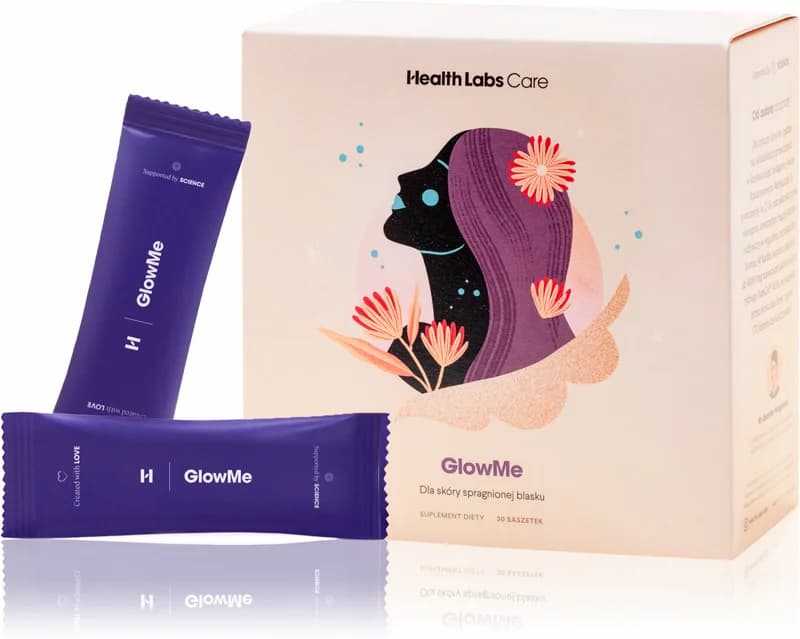
- Collagen content: 2500 mg collagen
- Additional active ingredients: vitamin C, silicon, glucosamine, hyaluronic acid, nettle and bamboo extracts
- Form: liquid to drink .
- Dose:25 ml .
- Sufficient for: 30 days .
Product description
100% natural collagen liquid without unnecessary ingredientsós. The composition of ingredientsós improves the appearance and condition of skinóry, hairów, nails. DuoLife is a good choiceór if you notice the first signs of skinóry ageing or want to stop this process. A tasty liquid, convenient to use.
Pros and cons
100% natural collagen liquid without unnecessary ingredientsós. The composition of ingredientsós improves the appearance and condition of skinóry, hairów, nails. DuoLife is a good choiceór if you notice the first signs of skinóry ageing or want to stop this process. A tasty liquid, convenient to use.
Additional information
100% natural collagen liquid without unnecessary ingredientsós. The composition of ingredientsós improves the appearance and condition of skinóry, hairów, nails. DuoLife is a good choiceór if you notice the first signs of skinóry ageing or want to stop this process. A tasty liquid, convenient to use.
User review
100% natural collagen liquid without unnecessary ingredientsós. The composition of ingredientsós improves the appearance and condition of skinóry, hairów, nails. DuoLife is a good choiceór if you notice the first signs of skinóry ageing or want to stop this process. A tasty liquid, convenient to use.
Pharmovit liquid collagen 10000 mg
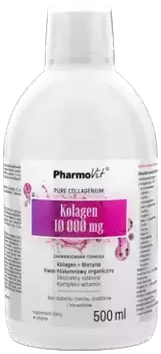
- Collagen content: 10000 mg hydrolysed bovine collagen types I and III .
- Additional active ingredients: hyaluronic acid, natural plant extracts, vitamin C, B vitamins, zinc, vitamin D
- Form: vials .
- Dose: 25 ml .
- Sufficient for: 20 days .
Product description
A solid daily dose of collagen for jointómuscle and bone health and beauty. The duo of collagen and vitamin C has a positive effect on each other, so that „the protein of youth” is better absorbed and more efficiently produced in the body.
Pros and cons
A solid daily dose of collagen for jointómuscle and bone health and beauty. The duo of collagen and vitamin C has a positive effect on each other, so that „the protein of youth” is better absorbed and more efficiently produced in the body.
Additional information
A solid daily dose of collagen for jointómuscle and bone health and beauty. The duo of collagen and vitamin C has a positive effect on each other, so that „the protein of youth” is better absorbed and more efficiently produced in the body.
KFD Premium Collagen+
Product description
High dose of collagen and a real bomb of vitamins C and D and organic sulphur. With this preparation the effects will come immediately. You will improve the firmness of your skin and reduce wrinkles. Your hair and nails will be strong and shiny.
A generous dose of collagen will improve the mobility of your jointsós, benefit your bone system and muscles. Do you do sports and need a product thatós able to keep up with your needs? This product will do the trick.
Pros and cons
High dose of collagen and a real bomb of vitamins C and D and organic sulphur. With this preparation the effects will come immediately. You will improve the firmness of your skin and reduce wrinkles. Your hair and nails will be strong and shiny.
A generous dose of collagen will improve the mobility of your jointsós, benefit your bone system and muscles. Do you do sports and need a product thatós able to keep up with your needs? This product will do the trick.
Additional information
High dose of collagen and a real bomb of vitamins C and D and organic sulphur. With this preparation the effects will come immediately. You will improve the firmness of your skin and reduce wrinkles. Your hair and nails will be strong and shiny.
A generous dose of collagen will improve the mobility of your jointsós, benefit your bone system and muscles. Do you do sports and need a product thatós able to keep up with your needs? This product will do the trick.
Expert opinion
High dose of collagen and a real bomb of vitamins C and D and organic sulphur. With this preparation the effects will come immediately. You will improve the firmness of your skin and reduce wrinkles. Your hair and nails will be strong and shiny.
A generous dose of collagen will improve the mobility of your jointsós, benefit your bone system and muscles. Do you do sports and need a product thatós able to keep up with your needs? This product will do the trick.
Product description
The dietary supplement from Remé contains beef collagen in a patented formula and vitamin C, whichóra aids its absorption. The formula comes in three flavours: neutral, orange-maracuja and strawberry-pomegranate. The formula can effectively support and improve the condition of the skinóry, hairóry and nails.
Pros and cons
The dietary supplement from Remé contains beef collagen in a patented formula and vitamin C, whichóra aids its absorption. The formula comes in three flavours: neutral, orange-maracuja and strawberry-pomegranate. The formula can effectively support and improve the condition of the skinóry, hairóry and nails.
Additional information
The dietary supplement from Remé contains beef collagen in a patented formula and vitamin C, whichóra aids its absorption. The formula comes in three flavours: neutral, orange-maracuja and strawberry-pomegranate. The formula can effectively support and improve the condition of the skinóry, hairóry and nails.
The dietary supplement from Remé contains beef collagen in a patented formula and vitamin C, whichóra aids its absorption. The formula comes in three flavours: neutral, orange-maracuja and strawberry-pomegranate. The formula can effectively support and improve the condition of the skinóry, hairóry and nails.
{ product:3toZVdGtbWWEszm5MCkjxH }}
{ product:SjhhglBTWh8yGa9f928JG }}
{ product:6bAfu3AQBDUnsDAG1FSakf }}
See also:
.
- The most powerful collagen for joints and skin .
- Drinkable collagen
- Collagen powder
- Collagen in sachets
- Liquid collagen
- Collagen in tablets
- Collagen in capsules
- How to choose collagen
Collagen hydrolysate - broken down into prime particles
.
What is collagen hydrolysate made of?
Collagen hydrolysate is obtained from fish, ox, pigs and sometimes poultry and eggs. Most of this protein is found in skins, cartilage, tendons and bones and, in the case of fish, also in scales and bonesand.
As you can see, collagen is an animal protein, meaning all products called 'vegan collagen' are actually substitutes containing plant-based amino acids. And while these substances may also support the proper functioning of the body to some extent and have positive effects on skin, hair and nails, they will not give the full effects associated with zoonotic collagen supplementation.
Natural collagen is not found in the plant world. However, vegans and vegetarians can ensure that ingredients that stimulate its synthesis, such as vitamin C, are introduced into the diet. It can be found in peppers, broccoli, spinach, strawberries, blackcurrant or kiwi. It is also important to remember to get enough plant protein, such as pulses, groats, rice or nuts..
 .
.
Alexandra Cudna Clinical nutritionist
The effects of collagen hydrolysate supplementation are not matched by food products. Jelly in fractures? That's definitely not enough.
Why?
It is all about so-called bioavailability, i.e. how quickly, easily and pleasantly your body will be able to absorb these protein amino acids. To put it simply: the collagen molecules contained in food are large enough that mostand of them won't get through the sieve that is the walls of your intestines.
The body's bioavailability is a question of bioavailability.
What is the difference between hydrolysate and regular collagen?
.
Hydrolysate differs from regular collagen primarily in terms of particle size. In hydrolysate, the long protein chain of collagen is broken down into smaller fragments called peptides. In normal collagen, this chain remains intact.
Collagen hydrolysate has a lower molecular weight and dissolves better in water. As a result, it has greater bioavailability and efficacy compared to regular collagen.
What is better: collagen hydrolysate or collagen?
.
For most people, collagen hydrolysate is the better choice because it is more easily absorbed into the body. Collagen hydrolysate has undergone a process of hydrolysis, which is the breaking down of long protein chains into shorter molecules - known as peptides.
This makes collagen hydrolysate more bioavailable (better absorbed), which enhances the effects of its use. Regular collagen requires larger amounts of digestive enzymes to be broken down into smaller fragments, making it less effective compared to hydrolysate.
There is one exception, however:
.
Native collagen is recommended for people with inflammatory joint disease because, according to research, it is used as a desensitising particle for the body not to attack its own cells..
 .
.
Ilona Krzak Master of Pharmacy
.
Collagen hydrolysate versus hydrate
.
Collagen hydrate is collagen treated with water or aqueous solutions, or hydration. It is also often referred to as hydrated collagen or collagen gel. Hydration affects the elasticity of collagen fibresand.
Collagen hydrate, is collagen to which water molecules have attached themselves, but unlike hydrolysate, in hydrate the protein does not break down into smaller molecules..
 .
.
Ilona Krzak Master of Pharmacy
Collagen hydrate is most commonly used in research, where it is used as a skin substituteand.
Collagen hydrolysate, on the other hand, is used in dietary supplementation studies because its smaller fragments are more easily absorbed by the body than whole collagen protein.
Collagen hydrolysate vs lyophilisate
.
Liophilisate is obtained by freezing and drying collagen to remove water from it. This makes freeze-dried collagen more concentrated, meaning it can be added to a product in a higher doseand.
However, for a dietary supplement to be effective, it is not only the dose that matters, but also the bioavailability of the main ingredient. Hydrolysate, by breaking down collagen into small peptides, digests much more easily and penetrates the body better.
Collagen hydrolysate versus gelatine
.
Gelatin is collagen protein dissolved in hot water. This simple process also has a complicated name: denaturation. Gelatin, although it can be a source of collagen in the diet, is not as effective as collagen hydrolysate.
By the way - don't be afraid that something is denatured. You regularly denature the things you eat: you boil eggs - denature. You fry chops - denaturation. It's just that you change the structure of the protein and that's it.
The collagen molecules in gelatine are large enough that they may not be digested effectively. Collagen hydrolysate has smaller molecules than gelatine and is also easier to digest.
Collagen hydrolysate has smaller molecules than gelatine and is also easier to digest.
What types of collagen can you find in hydrolysate?
.
The most common types of collagen you'll find in hydrolysate supplements are types I, II and III.
Type I is the collagen that is most abundant in our bodies (around 90%). It is present in the skin, joints and bones.
Type II is the best friend of athletes and people struggling with joint pain. It fills cartilage tissue, bones and aids joint synovial production.
Type III is found in the walls of blood vessels and the intestines. Its intake may have a positive effect on the cardiovascular system.
 Collagen hydrolysate - fish or zoonotic?
Collagen hydrolysate - fish or zoonotic?
.
Research makes it clear: the molecules of fish collagen (a.k.a. marine collagen) most closely resemble those of humans, and this ensures that they are best absorbed into our bodiesand. Supplementation with marine collagen may therefore yield better results than taking products isolated from slaughtered animals.
Bovine, porcine or fish? I definitely recommend the latter. Why? The absorption and assimilation of fish collagen is highest due to its low molecular weight. Importantly, fish collagen is much easier to dissolve in water, which simply makes it more convenient to use. In addition, we reduce the risk of contracting diseases of animal origin, such as so-called mad cow disease..
 .
.
Alexandra Cudna Clinical nutritionist
Fish collagen is also an option for pescatarians, i.e. vegetarians who allow the consumption of fish in their diet.
Interesting facts
Marine collagen is also known as fish collagen, however it does not have to be derived from fish at all. Research suggests that it can be effectively isolated from, for example... sea cucumber (unfortunately for vegans, it's still not a vegetable)and.
See also:
.
Collagen hydrolysate - effects
.
Collagen protein hydrolysate is the best absorbed form of this substance. This ensures you get the most reliable effects.
Results from scientific studies show that after just 8 weeks of collagen hydrolysate supplementation, changes can be observed in the appearance of the skin in the form of increased elasticity and hydration levels..
 .
.
Alexandra Cudna Clinical nutritionist
As she adds, regular supplementation also reduces joint soreness, both that associated with intense exercise and degenerative changes. Well, an increase in muscle mass and faster recovery from injuries is also observed.
She adds.
See what you can expect with regular use of collagen hydrolysate.
Smooths hair, skin, nails
.
Collagen is called the protein of youth because it is responsible for the condition of our skin. As its basic building block (70-80%), it takes care of its firmness and elasticity, as well as promoting wound healing. Collagen fills in the tissues and thus results in a shallowing of wrinkles and improved skin firmnessand.
Collagen supplementation will benefit the state of the skin all over the body. It will become more resilient and tighter. Thus, collagen hydrolysate may also prove helpful in the fight against cellulite or "fresh" stretch marksand.
Collagen hydrolysate will also work on the scalp, which is key to improving hair health. A healthy, moisturised scalp is like the soil in which the roots (but not the flowers but the hair) grow. It is what gives them the nutrients they need to grow properly.
Our hair and nails are mainly keratin, which is made up of amino acids. One of these is glycine, also present in collagenand. Youth protein hydrolysate can therefore benefit everyone with dreams of lush, shiny hair and damage-resistant nails .
Strengthens joints, bones and muscles
.
Collagen is found in joint cartilage and is important for the production of joint fluid. If one were to compare our joints to hinges, the synovium would be grease. When the body stops producing it in sufficient quantities, the cartilage starts rubbing against each other. This often causes pain and discomfort when moving.
Supplementation with collagen hydrolysate will support the production of joint lubricant and thus increase movement comfort. It may also prevent osteoarthritisand.
Research suggests that taking collagen peptides together with calcium and vitamin D has a positive effect on bone density, which is particularly important for women during and after menopauseand.
.
Supplementation with hydrolysed collagen also indirectly supports building muscle mass in people who participate in sports , and in older age - together with appropriate exercise - can prevent the loss of muscle mass .
.
Using collagen hydrolysate can therefore help keep the entire musculoskeletal system healthy, and keep you fit and functioning without pain for years to come.
See also:
- Effects of drinking collagen
- What collagen helps .
- How long to use collagen
- Grandmother's ways for joints
- Collagen for tennis elbow
Collagen hydrolysate - for whom?
.
Collagen is one of the best researched and safest substances you can supplementand. We particularly recommend it for people who want to:
- maintain a youthful appearance, .
- smooth wrinkles and reduce their appearance, .
- improve skin density and firmness, .
- have healthy joints, .
- minimise the risk of osteoporosis, .
- improve the condition of nails, .
- thicken hair, .
Collagen is also recommended for physically active people - it reduces joint soreness, strengthens bones, and speeds up recovery from injury. Studies show that collagen supplementation can also be beneficial for older people, as it increases muscle and bone mass and reduces joint pain..
 .
.
Alexandra Cudna Clinical nutritionist
The hydrolysed form of this formula will work well for people who want fast results. However, that is not all:
People with digestive disorders may find it difficult to digest collagen properly and therefore the protein will not be absorbed. Similarly for people with intestinal and gastritis, in whom absorption will also be impaired. In such cases, hydrolysate is definitely preferable..
 .
.
Ilona Krzak Master of Pharmacy
.
Collagen hydrolysate - contraindications
.
Although collagen hydrolysate is a safe compound, there are times when those taking it may experience mild gastrointestinal discomfortand.
Another counterindication to taking collagen are allergies, which may relate to the collagen itself (e.g. a fish allergy in the case of fish collagen supplementation), as well as to other ingredients present in the product being taken.
Note
Always check the composition of the product before starting supplementation! If you are taking other medications or are pregnant, consult your doctor before taking a supplement - always discuss the specific product as collagen supplements vary in composition and active ingredients.
Collagen hydrolysate - what to look for when choosing one?
.
Origin
.
You already know that marine-derived collagen in its structure is better adapted to your body, so it is more efficiently absorbed. When choosing the ideal formula for yourself, it is worth taking this into account.
Dose
.
The higher the dose of collagen, the better, however, as with everything, common sense should be exercised here too.
The higher the dose, the better.
For daily, long-term supplementation, formulations containing 5,000 mg of hydrolysate are best suited. For those who want to quickly replenish a deficiency, a dose of 10 000 mg may be better.
Additional ingredients
.
It is a good idea to choose formulations that contain collagen supplement ingredients in addition to the hydrolysate. The most popular are hyaluronic acid and vitamin C, which supports the body's natural collagen synthesis.
If you want to supplement with collagen hydrolysate for the sake of your skin, hair and nails, look for supplements like biotin, field horsetail, or vitamins A and E.
And if your goal is to improve function, chondroitin sulphate or vitamin K may be helpful.

Sprawdź, za co pokochały go tysiące klientek Kolagen Premium 5000 mg, mango-marakuja
Natu.Care Kolagen Premium 5000 mg, mango-marakuja
Natu.Care Kolagen Premium dla zdrowia stawów, skóry, paznokci i włosów. Najlepsza przyswajalność. Optymalna dawka 5 000 lub 10 000 mg. Przebadany przez niezależne laboratorium.
Zobacz więcej
Wybrałam kolagen Natu.Care, ponieważ miał super opinie – a to było dla mnie bardzo ważne! Odkąd go stosuję, moja skóra znacznie się poprawiła i jest nawilżona, a na głowie pojawiły się nowe "baby hair".@Kasia S.
See also:
.
Summary
.
- Collagen hydrolysate is collagen that has been broken down into smaller and more easily absorbed molecules.
- Collagen hydrolysate is collagen that has been broken down into smaller and more easily absorbed molecules.
- The best properties for the human body are demonstrated by collagen hydrolysate of fish origin type I. .
- Collagen supplementation improves the appearance of skin, hair and nails and has a positive effect on the musculoskeletal system.
FAQ
.Does collagen hydrolysate work?
.Yes, this is confirmed by numerous scientific studies. Collagen hydrolysate is an effective dietary supplement that benefits the condition of skin, hair, nails and joints, as well as the entire musculoskeletal system. Supplementation with collagen hydrolysate can help improve skin elasticity, reduce the appearance of wrinkles, strengthen hair and nails, and reduce joint pain and increase joint mobility. However, it is important to remember that the effectiveness of the hydrolysate depends on its quality, as well as on correct dosage and regular use.
How much collagen hydrolysate to take per day?
.It is usually recommended to take approximately 2.5 to 15 g of collagen hydrolysate per day to benefit the condition of skin, hair, nails and joints. However, tailor this dosage to your individual needs. Also pay attention to the manufacturer's guidelines for the product in question and do not exceed the maximum daily serving. If you are in doubt about the dosage and how to use the hydrolysate, consult your doctor or pharmacist.
Which collagen hydrolysate is best?
.The best bioavailable (i.e. bioavailable) type of collagen is fish collagen hydrolysate. This is because its structure most closely resembles that found in the human body. This collagen is extracted from the scales, skins and bones of marine fish.
Is drinking collagen safe?
.Supplements of drinking collagen are safe if you choose them from trusted brands and do not exceed the recommended daily dose. It is best if you read the label before use to ensure that the product does not contain ingredients to which you are allergic. Pregnant and breastfeeding women or those taking other medications should consult a doctor for supplementation.
As with any product, collagen hydrolysate may also cause adverse reactions in some people, most commonly from the digestive system.
What time to take collagen?
.As a general rule, the time at which you take collagen does not matter. Experts recommend that you do not take it immediately before bedtime, as it can give you a feeling of fullness in the stomach. Also check what the manufacturer itself says about how and when to take your product: for example, some supplements are most effective when taken with a meal.
What is hydrolysis?
.Hydrolysis is the chemical process of breaking down the molecules of a substance into smaller ones using water and other enzymes.
Hydrolysis of collagen involves breaking down collagen protein into smaller and more digestible fragments - collagen peptides.
Does collagen hydrolysate affect the liver?
.Collagen hydrolysate is considered safe at the doses recommended on the packaging and should not have a negative effect on the liver. Collagen hydrolysate is usually a product derived from natural protein sources. However, if you suffer from a liver ailment, it is worth consulting your doctor before starting supplementation.
.
Sources
.See all
."7 Final Report on the Safety Assessment of Hydrolyzed Collagen". Journal of the American College of Toxicology 4, no. 5 (September 1, 1985): 199–221. https://doi.org/10.3109/10915818509078691.
Abedin, Md Zainul, Alias A. Karim, Aishah A. Latiff, Chee-Yuen Gan, Farid Che Ghazali, Zoha Barzideh, Sahena Ferdosh, et al. "Biochemical and Radical-Scavenging Properties of Sea Cucumber (Stichopus Vastus) Collagen Hydrolysates." Natural Product Research 28, no. 16 (2014): 1302–5. https://doi.org/10.1080/14786419.2014.900617.
Argyrou, Chrysoula, Efthymia Karlafti, Kalliopi Lampropoulou-Adamidou, Simeon Tournis, Konstantinos Makris, George Trovas, Ismene Dontas, and Ioannis K. Triantafyllopoulos. "Effect of Calcium and Vitamin D Supplementation with and without Collagen Peptides on Bone Turnover in Postmenopausal Women with Osteopenia". Journal of Musculoskeletal & Neuronal Interactions 20, no. 1 (2020): 12. https://www.ncbi.nlm.nih.gov/pmc/articles/PMC7104583/
Asserin, Jérome, Elian Lati, Toshiaki Shioya, and Janne Prawitt. "The Effect of Oral Collagen Peptide Supplementation on Skin Moisture and the Dermal Collagen Network: Evidence from an Ex Vivo Model and Randomized, Placebo-Controlled Clinical Trials." Journal of Cosmetic Dermatology 14, no. 4 (2015): 291-301. https://doi.org/10.1111/jocd.12174.
Bello, Alfonso E., and Steffen Oesser. "Collagen hydrolysate for the treatment of osteoarthritis and other joint disorders:a review of the literature". Current Medical Research and Opinion 22, no. 11 (November 1, 2006): 2221–32. https://doi.org/10.1185/030079906X148373.
'Bovine Collagen vs Marine Collagen'. Accessed February 23, 2023. https://www.justvitamins.co.uk/blog/bovine-collagen-vs-marine-collagen/.
Clark, Kristine L., Wayne Sebastianelli, Klaus R. Flechsenhar, Douglas F. Aukermann, Felix Meza, Roberta L. Millard, John R. Deitch, Paul S. Sherbondy, and Ann Albert. "24-Week Study on the Use of Collagen Hydrolysate as a Dietary Supplement in Athletes with Activity-Related Joint Pain." Current Medical Research and Opinion 24, no. 5 (May 2008): 1485–96. https://doi.org/10.1185/030079908x291967.
Clifford, Tom, Matthew Ventress, Dean M. Allerton, Sarah Stansfield, Jonathan C. Y. Tang, William D. Fraser, Barbara Vanhoecke, Janne Prawitt, and Emma Stevenson. "The Effects of Collagen Peptides on Muscle Damage, Inflammation and Bone Turnover Following Exercise: A Randomized, Controlled Trial." Amino Acids 51, no. 4 (April 2019): 691–704. https://doi.org/10.1007/s00726-019-02706-5.
Figueres Juher, Teresa, and Esther Basés Pérez. "[An overview of the beneficial effects of hydrolysed collagen intake on joint and bone health and on skin ageing]."Nutricion Hospitalaria 32 Suppl 1 (18 July 2015): 62–66. https://doi.org/10.3305/nh.2015.32.sup1.9482.
Garnero, Patrick. "The Role of Collagen Organization on the Properties of Bone." Calcified Tissue International 97, no. 3 (September 2015): 229–40. https://doi.org/10.1007/s00223-015-9996-2.
Hexsel, Doris, Vivian Zague, Michael Schunck, Carolina Siega, Fernanda O. Camozzato, and Steffen Oesser. "Oral Supplementation with Specific Bioactive Collagen Peptides Improves Nail Growth and Reduces Symptoms of Brittle Nails." Journal of Cosmetic Dermatology 16, no. 4 (December 2017): 520-26. https://doi.org/10.1111/jocd.12393.
Holwerda, Andrew M, and Luc J C van Loon. "The impact of collagen protein ingestion on musculoskeletal connective tissue remodelling: a narrative review". Nutrition Reviews 80, no. 6 (1 June 2022): 1497-1514. https://doi.org/10.1093/nutrit/nuab083.
Inoue, Naoki, Fumihito Sugihara, and Xuemin Wang. "Ingestion of Bioactive Collagen Hydrolysates Enhance Facial Skin Moisture and Elasticity and Reduce Facial Ageing Signs in a Randomised Double-Blind Placebo-Controlled Clinical Study." Journal of the Science of Food and Agriculture 96, no. 12 (September 2016): 4077-81. https://doi.org/10.1002/jsfa.7606.
Khatri, Mishti, Robert J. Naughton, Tom Clifford, Liam D. Harper, and Liam Corr. "The Effects of Collagen Peptide Supplementation on Body Composition, Collagen Synthesis, and Recovery from Joint Injury and Exercise: A Systematic Review". Amino Acids 53, no. 10 (October 2021): 1493–1506. https://doi.org/10.1007/s00726-021-03072-x.
Kilinc, Bekir Eray, Yunus Oc, Gungor Alibakan, Emre Bilgin, Muharrem Kanar, and Osman Tugrul Eren. "An Observational 1-Month Trial on the Efficacy and Safety of Promerim for Improving Knee Joint". Clinical Medicine Insights. Arthritis and Musculoskeletal Disorders 11 (2018). https://doi.org/10.1177/1179544118757496.
León-López, Arely, Alejandro Morales-Peñaloza, Víctor Manuel Martínez-Juárez, Apolonio Vargas-Torres, Dimitrios I. Zeugolis, and Gabriel Aguirre-Álvarez. "Hydrolyzed Collagen-Sources and Applications." Molecules 24, no. 22 (January 2019): 4031. https://doi.org/10.3390/molecules24224031.
"Hydrolyzed Collagen-Sources and Applications. Molecules 24, no. 22 (November 7, 2019): 4031. https://doi.org/10.3390/molecules24224031.
Maia Campos, Patrícia Maria Berardo Gonçalves, Rodolfo Scarpino Barboza Franco, Letícia Kakuda, Gabriel Fernandes Cadioli, Gabriela Maria D'Angelo Costa, and Elodie Bouvret. "Oral Supplementation with Hydrolyzed Fish Cartilage Improves the Morphological and Structural Characteristics of the Skin: A Double-Blind, Placebo-Controlled Clinical Study." Molecules 26, no. 16 (12 August 2021): 4880. https://doi.org/10.3390/molecules26164880.
Mintz, G., G. M. Reinhart, and B. Lent. "Relationship between collagen hydrolysate molecular weight and peptide substantivity to hair". Journal of the society of cosmetic chemists, 1991. https://www.semanticscholar.org/paper/Relationship-between-collagen-hydrolysate-molecular-Mintz-Reinhart/c897b4bb4d7416c41531fe2441e26e8a9154e2f9.
Shaw, Gregory, Ann Lee-Barthel, Megan LR Ross, Bing Wang, and Keith Baar. "Vitamin C-enriched gelatin supplementation before intermittent activity augments collagen synthesis12". The American Journal of Clinical Nutrition 105, no. 1 (January 2017): 136-43. https://doi.org/10.3945/ajcn.116.138594.
Shoulders, Matthew D., and Ronald T. Raines. "Collagen Structure and Stability." Annual Review of Biochemistry 78, no. 1 (2009): 929–58. https://doi.org/10.1146/annurev.biochem.77.032207.120833.
Sibilla, Sara, Martin Godfrey, Sarah Brewer, Anil Budh-Raja, and Licia Genovese. "An Overview of the Beneficial Effects of Hydrolysed Collagen as a Nutraceutical on Skin Properties: Scientific Background and Clinical Studies". The Open Nutraceuticals Journal 8 (4 March 2015): 29–42. https://doi.org/10.2174/1876396001508010029.
Silva, Tiago H., Joana Moreira-Silva, Ana L. P. Marques, Alberta Domingues, Yves Bayon, and Rui L. Reis. "Marine Origin Collagens and Its Potential Applications." Marine Drugs 12, no. 12 (5 December 2014): 5881-5901. https://doi.org/10.3390/md12125881.
Yang, Fei-Chi, Yuchen Zhang, and Maikel C. Rheinstädter. "The structure of people's hair". PeerJ 2 (14 October 2014): e619. https://doi.org/10.7717/peerj.619.
Yousef, Hani, Mandy Alhajj, and Sandeep Sharma. "Anatomy, Skin (Integument), Epidermis." In StatPearls. Treasure Island (FL): StatPearls Publishing, 2023. http://www.ncbi.nlm.nih.gov/books/NBK470464/.
Beghé, F., C. Menicagli, P. Neggiani, A. Zampieri, L. Trallori, E. Teta, and S. Rosini. "Lyophilized Non-Denatured Type-I Collagen (Condress) Extracted from Bovine Achilles' Tendon and Suitable for Clinical Use". International Journal of Tissue Reactions 14 Suppl (1992): 11-19. https://pubmed.ncbi.nlm.nih.gov/1639581/
Lowe, Christopher J., Ian M. Reucroft, Matthew C. Grotto, and David I. Shreiber. "Production of Highly Aligned Collagen Scaffolds by Freeze-drying of Self-assembled, Fibrillar Collagen Gels." ACS biomaterials science & engineering 2, no. 4 (11 April 2016): 643-51. https://doi.org/10.1021/acsbiomaterials.6b00036.
Uhlig, Manuel R., and Robert Magerle. "Unraveling Capillary Interaction and Viscoelastic Response in Atomic Force Microscopy of Hydrated Collagen Fibrils." Nanoscale 9, no. 3 (19 January 2017): 1244-56. https://doi.org/10.1039/C6NR07697A.
Hribar, Kolin C., Kyle Meggs, Justin Liu, Wei Zhu, Xin Qu, and Shaochen Chen. "Three-Dimensional Direct Cell Patterning in Collagen Hydrogels with near-Infrared Femtosecond Laser." Scientific Reports 5, no. 1 (25 November 2015): 17203. https://doi.org/10.1038/srep17203.
BERTHOD, F., and O. DAMOUR. "In vitro reconstructed skin models for wound coverage in deep burns". British Journal of Dermatology 136, no. 6 (June 1, 1997): 809–16. https://doi.org/10.1111/j.1365-2133.1997.tb03917.x.
Pu, Szu-Yu, Ya-Li Huang, Chi-Ming Pu, Yi-No Kang, Khanh Dinh Hoang, Kee-Hsin Chen, and Chiehfeng Chen. "Effects of Oral Collagen for Skin Anti-Aging: A Systematic Review and Meta-Analysis." Nutrients 15, no. 9 (January 2023): 2080. https://doi.org/10.3390/nu15092080.
Jelonek, L. (2023). Collagen. Everything you need to know (B. Turczynski, ed.; 1st ed.). Natu.Care. https://books.google.com/books?vid=9788396887801
..
Editorials
Meet the team

Ilona Krzak obtained her Master of Pharmacy degree from the Medical University of Wrocław. She did her internship in a hospital pharmacy and in the pharmaceutical industry. She is currently working in the profession and also runs an educational profile on Instagram: @pani_z_apteki

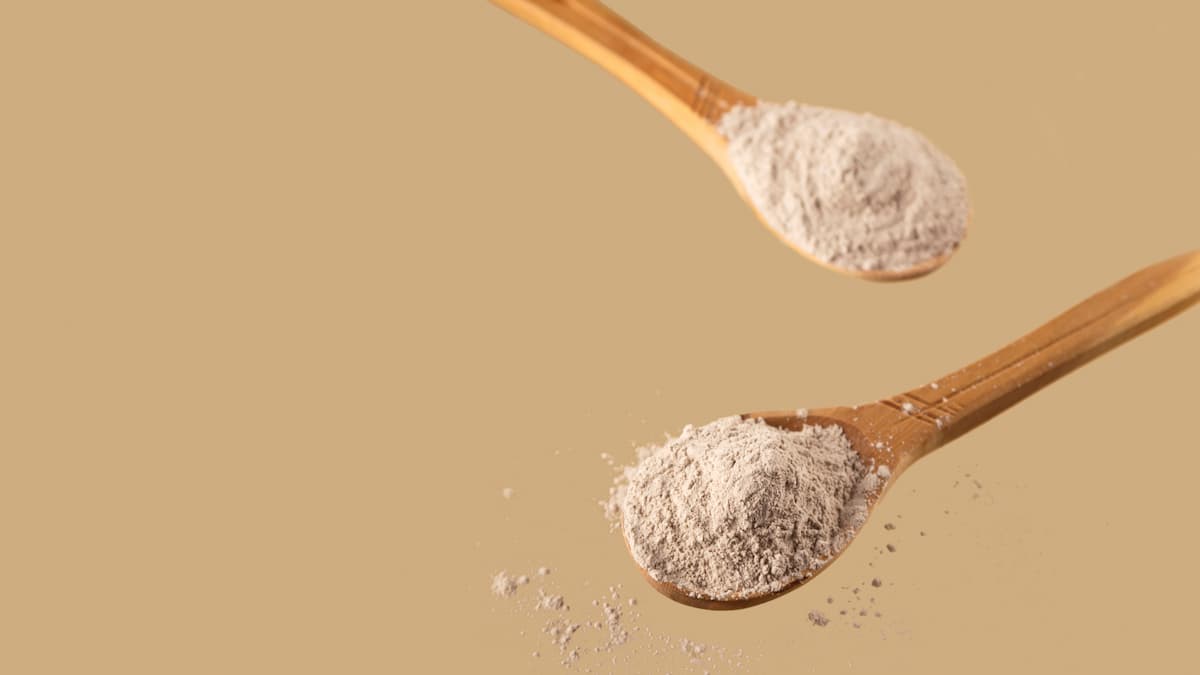
Everything you want to know about COLLinstant collagen.

Collibre collagen is an interesting supplement in shot form.
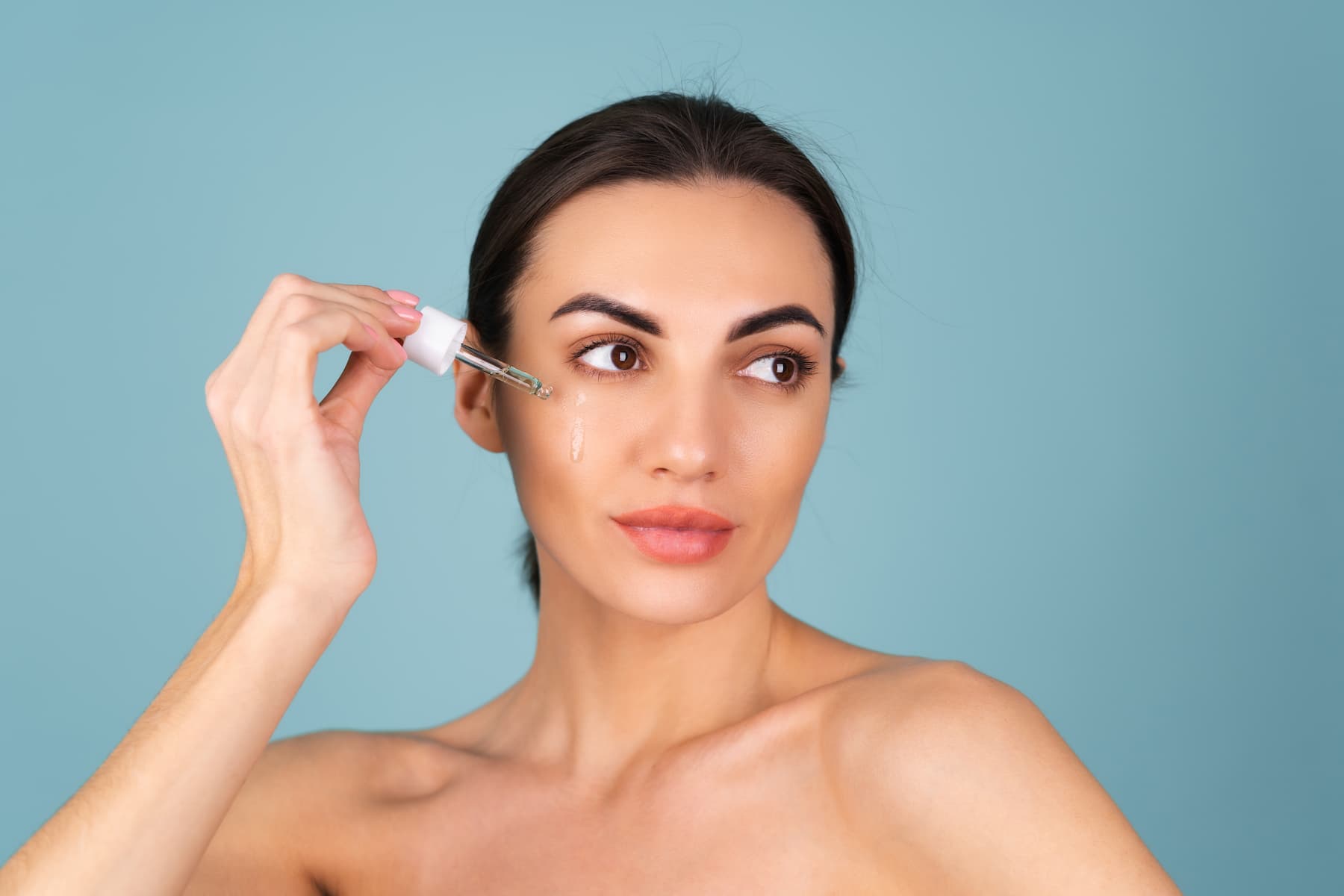
Solgar collagen with hyaluronic acid is a dietary supplement that supports skin and joint health.
